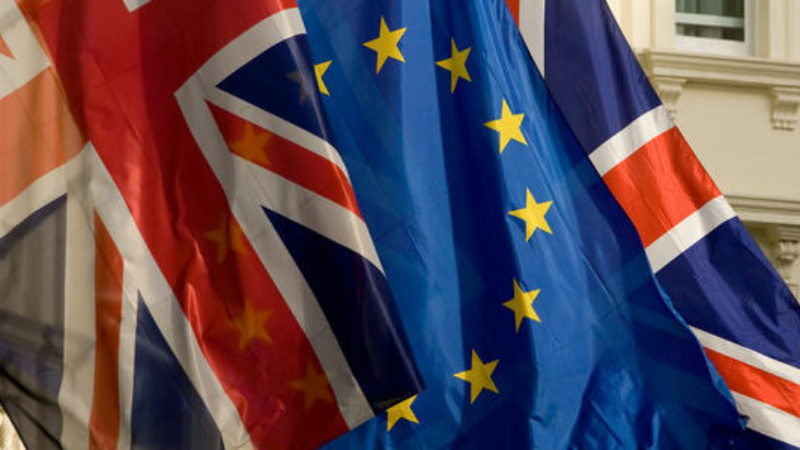
For David Cameron struggling to tame Douglas Carswell and Liam Fox now, read John Major battling with the ‘bastards’ in his own Cabinet in 1993.
But the reality, as Jon Worth correctly and elegantly points out, is the UK’s relationship with the European Union is Labour’s problem too. Not just because, as Jon says, Labour’s excellent Shadow Foreign Affairs team may have to deal with a Tory pre-election pledge for renegotiation then referendum, but because a rapidly changing Europe may well be one of Ed Miliband’s biggest problems after 2015.
Let’s assume that over the next year Angela Merkel decides her strategy of kicking the can down the road doesn’t work in a cul-de-sac. This will allow for a solution to the Eurozone’s huge problems, a healthy dose of growth to balance austerity, and some form of mutualisation of weaker Eurozone country debt. In return for Germany writing a series of large cheques, it will then insist on greater control over weaker economies through banking and fiscal unions.
We can thank Gordon Brown that we’re not in the Euro ourselves but it does mean that we may have to sit and watch while the ever closer union – that every Foreign Secretary since Ernest Bevin has resisted – becomes a reality. So in response to Jon’s question what should Labour be arguing for in opposition, and what should a Labour Government do if it wakes up one day after 2015 next to a Eurozone superstate?
We must safeguard the British interest is in all this: the Single Market; the biggest free trade area in the world, bigger than the US and Japan combined, 500 million people, €12.6 trillion in economic activity, accounting for over half of UK trade, and half of foreign investment, £350 billion every year. We probably also get the other half because of our access to the Single Market, a point Cameron and Osborne are careful to highlight when they sell the UK abroad.
So we should leave the EU but stay in the Single Market like Norway, right? Wrong. If we left the EU we would still be subject to around 80% of the mythical straight banana single market regulations but without any power to influence them, so just like Norway but with less oil.
So what are the options? Option one is to join the Euro and the banking and fiscal unions that will go with it. Good luck with that referendum… Option two is to join the Government on the sidelines, criticise, and threaten to veto any changes to EU treaties. We would then have no allies, no skin in the game and no negotiating power as a new Europe is forged outside the EU treaties. The calls from the Daily Express and David Owen for a referendum on our EU membership could then become irresistible.
Option three is to stay at the table, argue for growth rather than just austerity, avoid calls for sovereignty changes which require a referendum but keeps us out of the Eurozone and banking union, but very much in the EU, and in the Single Market. At this time of European peril when UK financial expertise could be helpful, we must ensure we can live with the new European architecture even if we’re not part of it.
Labour has been making this argument and should continue to do so.
By 2015 the Eurozone will either have collapsed, be much smaller or more likely be getting much closer together. I suspect the 2015 Tory manifesto will promise a renegotiation with Europe followed by referendum. Nick Clegg pretends to be angry about this but he’s careful to say he only objects to a renegotiation now while Europe is in crisis mode. Time for a prediction: if the Tories offer a referendum in 2015, so will the Lib Dems.
And so will Labour.
But only after the dust has settled on a new Europe with an inner Eurozone core and a wider Europe based around the Single Market, and only after the UK and our non-Eurozone allies have had a chance to negotiate for a better deal.
The Tories have their renegotiation shopping list: ‘repatriation’ of large swathes of social and employment law followed by removal of employment rights from millions of Britons. Labour’s challenge is to come up with its own pro-growth shopping list which builds on, rather than threatens, the Single Market. So let’s complete the Single Market in energy, digital and services which could add €200 billion to EU GDP. How about reforming or even removing the costly, price-inflating and protectionist Common Agricultural Policy, or tackling the shocking lack of democracy in the European institutions?
Now is the time to develop a Europe that works for Britain and on which a future simple in/out referendum could be won. A free trade but social Europe built around growth as well as fiscal prudence. This could be Labour’s moment.
Will Tanner is Vice-Chair of Business for New Europe and a Partner at RLM Finsbury




More from LabourList
Turning the page? Labour’s recovery in the polls show a path to 2029 victory
Restoration announce recommendations for NEC candidates
‘Factionalism at the top is weakening Labour – and handing a gift to Reform’